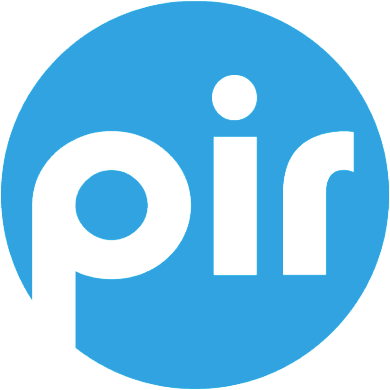by Jon Nevett, President and CEO of PIR
Transparency and accountability are embedded in ICANN’s core values. Indeed, ICANN’s Bylaws mandate that “ICANN and its constituent bodies shall operate to the maximum extent feasible in an open and transparent manner …”. Public Interest Registry believes that a dedication to transparency is fundamental to the strength and continued effectiveness of ICANN’s multistakeholder model.
The ICANN GNSO Statement of Interest (SOI) Task Force’s transparency recommendations to the GNSO Operating Procedure are a step in the right direction, but they don’t go far enough. Due to an exception in the application of the SOI proposal, there is no real requirement that individuals disclose the identity or identities of who they represent in ICANN policymaking processes.
For there to be meaningful transparency in ICANN policymaking, participants must disclose the identities of their clients or the employers they represent as a condition to participating, without exception. And this should be inclusive of all parties. For example, if Party A retains Party B to participate in an ICANN process and Party B retains Party C to do the work, Party C needs to disclose both Party A and Party B (not just Party B). This disclosure requirement should apply regardless of the level of compensation involved, if any.
The rules proposed by the Task Force would require a person participating in the Policy Development Process (PDP) as a paid or unpaid representative of another party to disclose who they are representing. This sounds great, but there remains an enormous loophole in the application of the recommendation as follows:
“If professional, ethical obligations prevent you from disclosing this information, please provide details on which ethical obligations prevent you from disclosing and provide a high-level description of the entity that you are representing without disclosing its name, for example, ‘I represent a Registry client’ or ‘I am representing a non-GNSO related entity.’”
This exception would swallow the rule as a mere claim of attorney-client privilege or an ‘ethical’ obligation placed into a consulting contract would prevent this important disclosure and block the GNSO from achieving the transparency that should be fundamental to the multistakeholder policy development process and is required in ICANN’s Bylaws.
This level of transparency is not unique to ICANN. Other trusted international policymaking organizations have worked to enshrine their commitment to transparency into their operations. Organisation for Economic Co-operation and Development (OECD) has noted consultants representing others’ interests or lobbyists involved in the policymaking process can “lead to undue influence, unfair competition and regulatory capture to the detriment of the public interest and effective public policies.” In order to “safeguard the integrity of the public decision-making process,” the OECD seeks “a sound framework for transparency” that requires disclosure of clients for those engaged in the public policy process.
Just last year, the European Parliament adopted a “Transparency Register,” recognizing that “citizens should have the greatest possible trust in the Union’s institutions” and “that trust, in order to exist, needs to be underpinned by a perception that interest representation is bound by high ethical standards.”
This is also consistent with U.S. requirements that organizations and lobbyists disclose on behalf of which clients they seek to influence the lawmaking process at the United States Congress.
The common theme in each of these disclosure requirements is that for there to be fairness and increased trust in the results of policymaking, transparency must be the foundation of those processes. And if parties don’t disclose for whom they represent—all the way to the source—they should not be able to participate.
The loophole shows an apparent assumption there is some professional/ethical obligation that is somehow stronger than the normative OECD/EU/US disclosure regimes. Common sense dictates that requiring disclosure in order to participate in an ICANN process wouldn’t violate a privilege any more than would similar requirements at the U.S. Congress or the European Parliament. For that matter, any argument of attorney-client privilege is a red herring, as it ignores the fact that, at least under U.S. law, client identities are generally not even considered covered by the privilege.
To be clear, there have been and are a number of very productive and helpful members of the ICANN community who have actively participated in past and ongoing GNSO processes without disclosing who they represent. We are not suggesting that they have done anything wrong; they simply operated within the rules in place and adhered to client requests not to disclose their identities.
The GNSO SOI Task Force has an important opportunity to upgrade ICANN’s transparency, but on its current trajectory, it is falling short of its potential. Now is the time to fundamentally improve these transparency rules in order to live up to ICANN’s Bylaws and international best practices. ICANN should be a beacon of transparency in its policymaking. Let’s remove the loophole.
For more information, please see PIR’s public comments.
This article originally appeared on CircleID. You can access it here.
